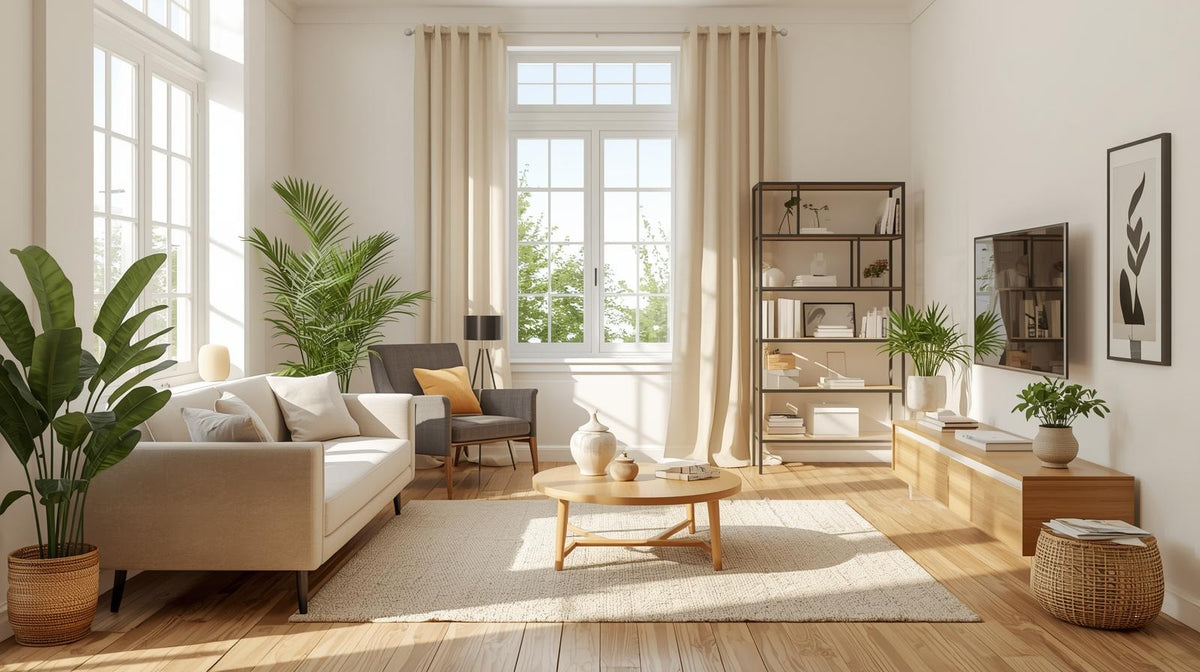
How Feng Shui Principles Adapt to Small Living Spaces
|
Time to read 4 min
|
Time to read 4 min
Many Filipinos believe Feng Shui is only meant for spacious houses or traditional Chinese mansions. But what about the rising number of condo dwellers and apartment renters in cities like Manila, Cebu, and Davao? With the rapid shift to urban living, more Filipinos are asking: Can Feng Shui still work in a 25–40 sqm unit?
The answer is yes. Feng Shui is not about the size of your home—it’s about how energy flows within it. By understanding and adapting ancient principles to modern lifestyles, even the smallest homes can become spaces filled with harmony, prosperity, and balance.
Small living spaces often face unique challenges—limited storage, cramped layouts, and multipurpose rooms that mix work, sleep, and dining. In Feng Shui, these factors can easily disrupt chi, the life energy that should flow smoothly through your home.
For condo and apartment dwellers, applying Feng Shui can bring:
Improved comfort in tight quarters
Clearer energy flow despite limited layout options
A stronger sense of control over work and rest zones
Opportunities for prosperity and balance in everyday living
In small homes, clutter is the biggest enemy. Piles of clothes, shoes by the door, or crowded countertops block chi and create stagnant energy. By clearing walkways and keeping furniture proportional to the space, chi can circulate more freely.
Small units can feel too dark (yin-heavy) or overly bright and busy (yang-heavy). Soft lighting, light curtains, and plants can help balance this energy, making your home both cozy and uplifting.
Even in a studio, your bed, desk, and sofa should be positioned so you can see the main door without being directly in line with it. This placement supports security, awareness, and a sense of control.
Arrange furniture to create open flow. Avoid blocking windows or doors, which are key entry points for energy. A floating bed or sofa—even just a few inches away from the wall—encourages movement of chi.
Mirrors double what they reflect. Use them to make narrow spaces feel larger and brighter. But avoid placing them directly opposite your bed, as this may lead to poor sleep and restless energy.
Small space Feng Shui is all about intentional living. Broken items, unused appliances, and clutter under the bed can weigh down energy. Keep surfaces clean and closets organized to attract fresh opportunities.
If a big water fountain or garden isn’t possible, scale it down. Small bamboo plants, succulents, or even a bowl of citrus fruits can introduce natural elements without taking up much room.
Light neutrals like beige and cream expand space, while accents of red, gold, or green activate prosperity and vitality. A neutral base with bold touches creates balance without overwhelming the room.
Since many Filipinos now work remotely, it’s essential to design apartments that support both productivity and relaxation. Feng Shui helps by:
Zoning Your Space: Use rugs, curtains, or shelves to divide living, working, and sleeping areas.
Desk Placement: Position your work desk in the command position, ideally near natural light, to enhance focus and clarity.
End-of-Day Rituals: Put away work tools at night or cover your desk with a cloth to symbolically “close” office energy and reset for rest.
Living in a condo or small apartment means you can’t waste space. Feng Shui aligns perfectly with minimalist, functional design:
Foldable furniture helps prevent energy stagnation.
Under-bed storage should be avoided for heavy items like books or gadgets. Instead, store soft items like linens to keep sleep energy clear.
Vertical design using tall shelves, hanging décor, and indoor plants draws chi upward, making rooms feel taller and more open.
A young professional rearranged their bed diagonally from the door, placed a jade plant by the window, and used soft lighting to create a balance between work and rest. The result? A more peaceful, energized space.
The family positioned their dining table away from the front door to avoid energy “escaping” and used mirrors in the kitchen to symbolically double their food—believed to multiply abundance.
The owner kept the palette light and neutral, accented with gold and red décor, creating an airy yet prosperous vibe. A small water feature near the entrance reinforced wealth energy.
Feng Shui in the Philippines is uniquely adapted because:
Layouts are fixed: Most condos have immovable bathrooms and doors, so cures like crystals, coins, or plants are used to adjust energy instead.
Blending with faith: Many Filipino homes mix Catholic icons with Feng Shui objects, creating a cultural balance of faith and tradition.
Climate considerations: Feng Shui advice is adapted for tropical heat, favoring breathable fabrics, natural ventilation, and light colors.
Small living doesn’t mean you have to sacrifice balance, peace, or prosperity. By making mindful choices, condo and apartment owners in the Philippines can apply Feng Shui to unlock harmony and abundance, no matter the size of their home.